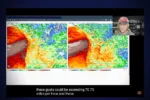Have you ever wondered how our world works? Everything around us, from the tiniest insects to the tallest mountains, is part of a big, exciting puzzle! In this adventure, we will explore some amazing facts about nature, science, and the wonderful creatures that share our planet. By understanding these key ideas, we can learn how to protect our environment and make it a better place for everyone. Join me as we dive into the fascinating world of nature and science, where every discovery helps us appreciate the beauty of the Earth!
| Category | Details |
|---|---|
| Animals | Mammals, Birds, Fish, Reptiles, Amphibians |
| Habitats | Forests, Deserts, Oceans, Rivers, Mountains |
| Food Chains | Producers (plants), Consumers (animals), Decomposers (fungi, bacteria) |
| Adaptations | Physical traits (camouflage, sharp teeth), Behavioral traits (migration, hibernation) |
| Conservation | Protecting endangered species, Habitats, Sustainable practices |
What is a Healthy Diet?
A healthy diet means eating a variety of foods that give our bodies the nutrients they need. This includes fruits, vegetables, whole grains, and proteins like meat, beans, and nuts. Eating these foods helps us grow strong, have lots of energy, and stay healthy. It’s important to choose foods that are good for us, instead of snacks that are high in sugar and fat.
By eating a healthy diet, we can help our bodies fight off illnesses and keep our hearts strong. Drinking plenty of water is also part of a healthy diet. It keeps us hydrated and helps our bodies work properly. When we eat well, we feel better, can think clearly, and enjoy our activities more!
The Importance of Exercise
Exercise is important for keeping our bodies fit and healthy. When we move our bodies, it helps our muscles grow and our hearts stay strong. Kids should try to get at least an hour of physical activity every day. This can be playing sports, riding a bike, or even dancing! When we exercise, we also feel happier and less stressed.
Being active is not just good for our bodies; it also helps our minds. Exercise can improve our focus in school and make us feel more confident. It’s important to find activities we enjoy because that makes it easier to stay active. So, let’s find fun ways to move and play every day!
Tips for Staying Healthy
Staying healthy is all about making smart choices every day. One tip is to eat a rainbow of fruits and vegetables. Each color has different vitamins that help our bodies in different ways. Also, it’s helpful to plan meals ahead of time to avoid eating junk food when we’re hungry.
Another tip is to get plenty of sleep. Sleep helps our bodies recover and gives us energy for the next day. Lastly, remember to wash your hands often to stay germ-free. By following these simple tips, we can keep our bodies strong and healthy!
The Importance of Digital Literacy in Today’s Job Market
In an increasingly digital world, digital literacy has become a fundamental skill for success in the job market. Employers are looking for candidates who can navigate technological tools and platforms effectively. Understanding how to use software, access information online, and communicate through digital channels is no longer optional; it is a requirement. This skillset enables individuals to enhance productivity and adapt to the ever-evolving demands of the workplace.
Moreover, digital literacy fosters innovation and creativity within organizations. Employees who are comfortable with technology are more likely to contribute to problem-solving and process improvements. As industries continue to integrate advanced technologies like AI and data analytics, those with strong digital skills will have a competitive edge. Investing in digital literacy training can significantly boost employability and career advancement prospects in any field.
Breaking Down the Basics of Data Privacy
Data privacy refers to the proper handling, processing, and storage of personal information. With the rise of data breaches and cyber threats, understanding the fundamentals of data privacy has become essential for individuals and businesses alike. People must be aware of how their data is collected and used, and organizations need to implement robust security measures to protect sensitive information. This awareness helps build trust between consumers and companies.
Furthermore, data privacy regulations, such as the GDPR and CCPA, emphasize the importance of safeguarding personal data. These laws require organizations to be transparent about their data practices and grant consumers control over their information. By prioritizing data privacy, businesses can not only comply with legal standards but also enhance their reputation and loyalty among customers. Educating oneself about these regulations is crucial for anyone navigating the digital landscape.
The Benefits of Remote Work for Employees and Employers
Remote work has transformed the traditional workplace, offering significant advantages for both employees and employers. For employees, remote work provides greater flexibility in managing their schedules, leading to improved work-life balance. This flexibility can enhance job satisfaction and reduce stress, contributing to better overall mental health. Additionally, employees save time and money by eliminating commuting, which can be redirected towards personal or professional development.
On the employer side, embracing remote work can lead to increased productivity and lower overhead costs. Companies can tap into a broader talent pool without geographical limitations, allowing them to hire skilled professionals from diverse backgrounds. Furthermore, remote work can reduce expenses related to office space and utilities. As organizations adapt to this new norm, they should focus on fostering a strong company culture and effective communication to maintain team cohesion.
Emerging Technologies Shaping the Future of Work
Emerging technologies are revolutionizing the workplace, fundamentally altering how we work and interact. Innovations such as artificial intelligence, machine learning, and automation are streamlining processes and enhancing efficiency. By handling repetitive tasks, these technologies free up employees to focus on more strategic initiatives, fostering creativity and innovation. Understanding these technologies is crucial for professionals looking to stay relevant in an ever-changing job landscape.
Moreover, the integration of collaborative tools and platforms is facilitating remote work and enhancing teamwork. Technologies like virtual reality and augmented reality offer immersive experiences for training and collaboration, bridging physical gaps between team members. As these technologies continue to evolve, organizations must embrace them to remain competitive and adaptable. Continuous learning and upskilling in new technologies will be key for individuals aiming to thrive in the future work environment.
Frequently Asked Questions
What is a **solar system** and why is it important?
A **solar system** is a group of planets and other objects that orbit a star, like our sun. It is important because it helps us understand how planets and moons work together in space.
How do **plants grow** and what do they need?
**Plants grow** by using **sunlight**, **water**, and **nutrients** from the soil. They need these things to make food through a process called **photosynthesis**, which helps them stay healthy and strong.
What are **ecosystems** and why do they matter?
An **ecosystem** is a community of living things, like plants and animals, interacting with their environment. They matter because they support life and keep nature balanced by recycling nutrients.
What does **gravity** do for us?
**Gravity** is a force that pulls objects toward each other, like the earth pulling us down. It keeps us grounded and helps everything stay in place, like keeping the moon around our planet.
How do **electric circuits** work in simple words?
An **electric circuit** is like a path for electricity to travel. It works when we connect a power source, like a battery, to devices, allowing them to turn on and work.
What is **recycling** and how does it help the planet?
**Recycling** is turning old materials into new products. It helps the planet by reducing waste, saving energy, and conserving resources, making the Earth a cleaner place.
Why do we need **water** and how do we use it?
We need **water** to survive because it keeps our bodies healthy. We use it for drinking, cooking, cleaning, and growing food, making it essential for life.
Summary
The content discusses the significance of effective communication in the workplace and highlights key strategies for improvement. It explains the importance of clarity and active listening, emphasizing how they contribute to better team collaboration and productivity. Additionally, it covers the role of nonverbal cues in conveying messages and fostering a positive work environment. The content aims to provide actionable insights for individuals and organizations, offering valuable information on enhancing interpersonal skills and overcoming communication barriers. Overall, it underscores that strong communication is vital for achieving success and maintaining healthy professional relationships.







